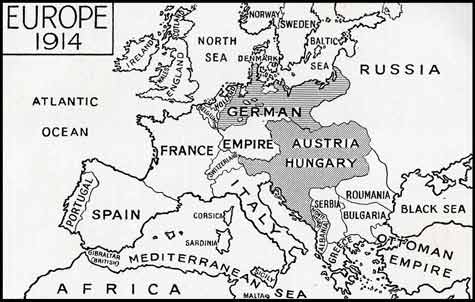The Cause-and-Effect Essay
by Owen Fourie
~ Part Two ~
In Part One of this article, we considered the choice of topic and some of the questions you should ask as you do your research for this type of essay.
The articles in the mechanics-of-essay-writing category will help you to write your cause-and-effect essay. Your research and your outline are basic requirements if you are to write intelligently.
Let’s go on to consider what is involved in the introduction, the thesis statement, the body, and the conclusion.
The introduction
In your introduction, clearly state your purpose in choosing your topic:
- What is its relevance?
- Is it a matter that concerns people generally, or is its relevance for a select group?
- Why should it be considered at all?
- What are you hoping to accomplish in your essay?
You are dealing with a particular effect that, according to your findings, is being caused by certain processes, people, procedures, neglects, practices, whatever it might be.
Indicate that in your essay you will discuss the effect or effects and demonstrate the cause or causes and the clear connection between cause and effect. This leads into your thesis statement–the essential point of your introduction.
The thesis statement
It is important to establish a clear thesis statement because it is both the engine that drives your essay and the force that holds it together.
To return to the reference to World War I in the first part of this article, a thesis statement dealing with its causes could take this form:
While the immediate cause of the First World War was the assassination of Archduke Franz Ferdinand, that event in itself would not have had the effect it did have had it not been for the growth of nationalism and militarism as well as the imperialist ambitions and mutual-defense alliances that came into play in Europe in the late nineteenth century.
Richards, Denis. “Map: Europe 1914.” An Illustrated History of Modern Europe 1789-1945. London: Longmans, 1950. 304. Print.
Let’s move on now to the body paragraphs and here we’ll leave World War I behind and think generally of what should be done in a more contemporary setting.
The body
You should have at least three paragraphs in the body where you will support and prove your thesis.
Devote the first of these paragraphs to describing the effect in detail:
- Where, when, how was it first noted and observed?
- What are the problems that are being experienced?
- Are there further consequences?
In the following body paragraph, dismiss any shallow thinking about what the cause might be. This would certainly apply to post hoc reasoning about the matter.
This clears the way for you to declare the real cause. Give evidence of its connection to the effect and support your claim with evidence using facts, quotes, statistics, illustrations, examples, and observations.
In the final body paragraph, propose a course of action for the removal or reduction of the cause or causes and predict the outcome in a more desirable effect for the benefit of all concerned.
The conclusion
In your conclusion, briefly summarize the cause and the effect and the clear connection between them that you have established.
Restate your thesis by paraphrasing it, by stating it in such a way that it carries the meaning of the original statement without repeating it word for word.
Issue a challenge, a call to action, if that is what is needed.
For your guidance
The cause-and-effect essay is applicable to many different areas of study. What is being given to you in this article really amounts to a generalization.
It remains for you to take this as a broad guide, a launching pad, as it were, to work out the finer detail in your particular assignment. You need to adapt these general guidelines to the specific nature of your subject and raise questions relevant to that topic to motivate your thinking about it.
A cause-and-effect essay can be complicated. It requires clear thinking and writing, which can be achieved only if you have gained a thorough grasp of your subject through careful and detailed research.
Be sure of your facts and beware of faulty logic. Above all, keep to a few major points for the sake of clarity and simplicity. Overloading your essay with too many points will lead to confusion.
What is your experience with writing cause-and-effect essays? Do you have any useful insights? What are your particular struggles? What is your experience with creating thesis statements? Your comments, observations, and questions are welcome.
Here are more articles to help you with English words, grammar, and essay writing.
Copyright © 2010 by English Essay Writing Tips www.englishessaywritingtips.com

